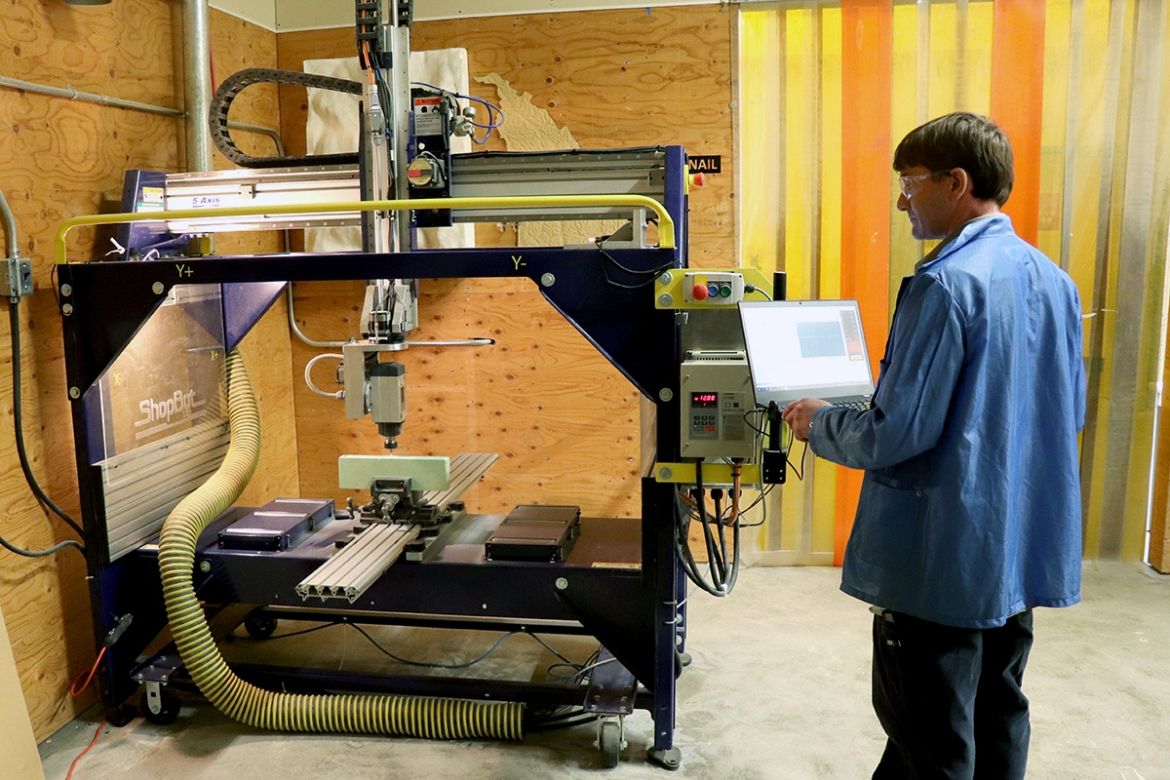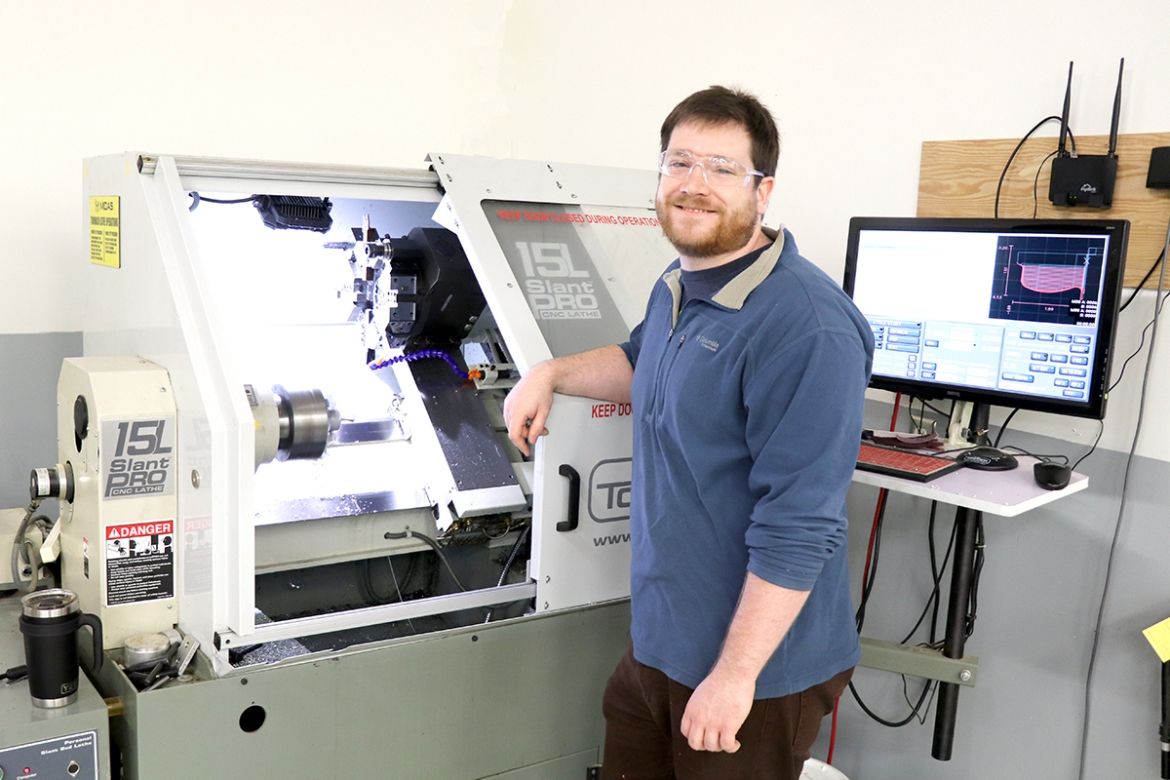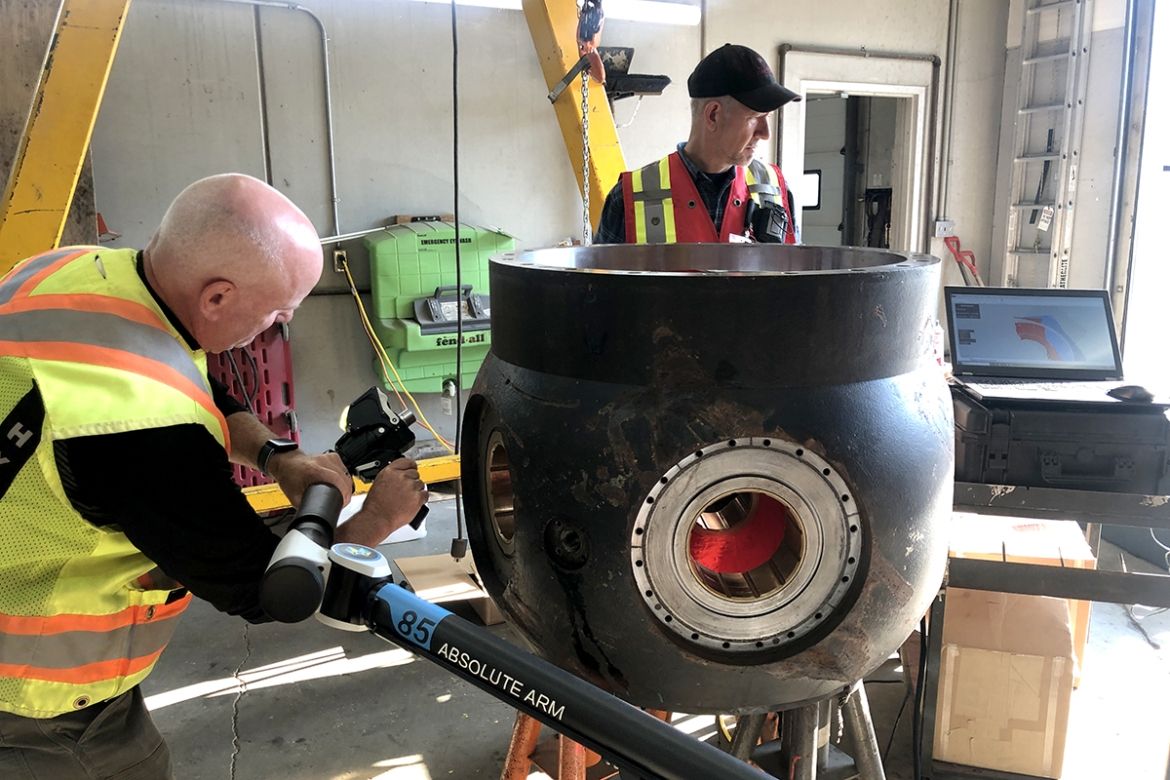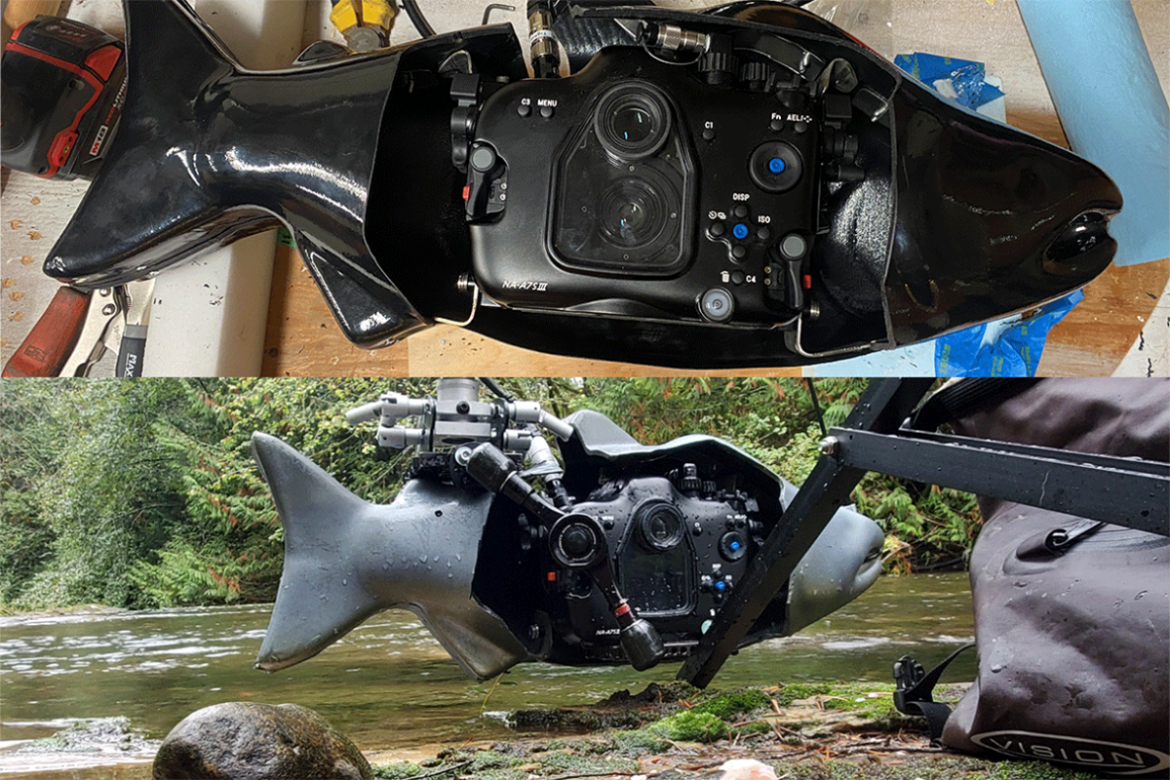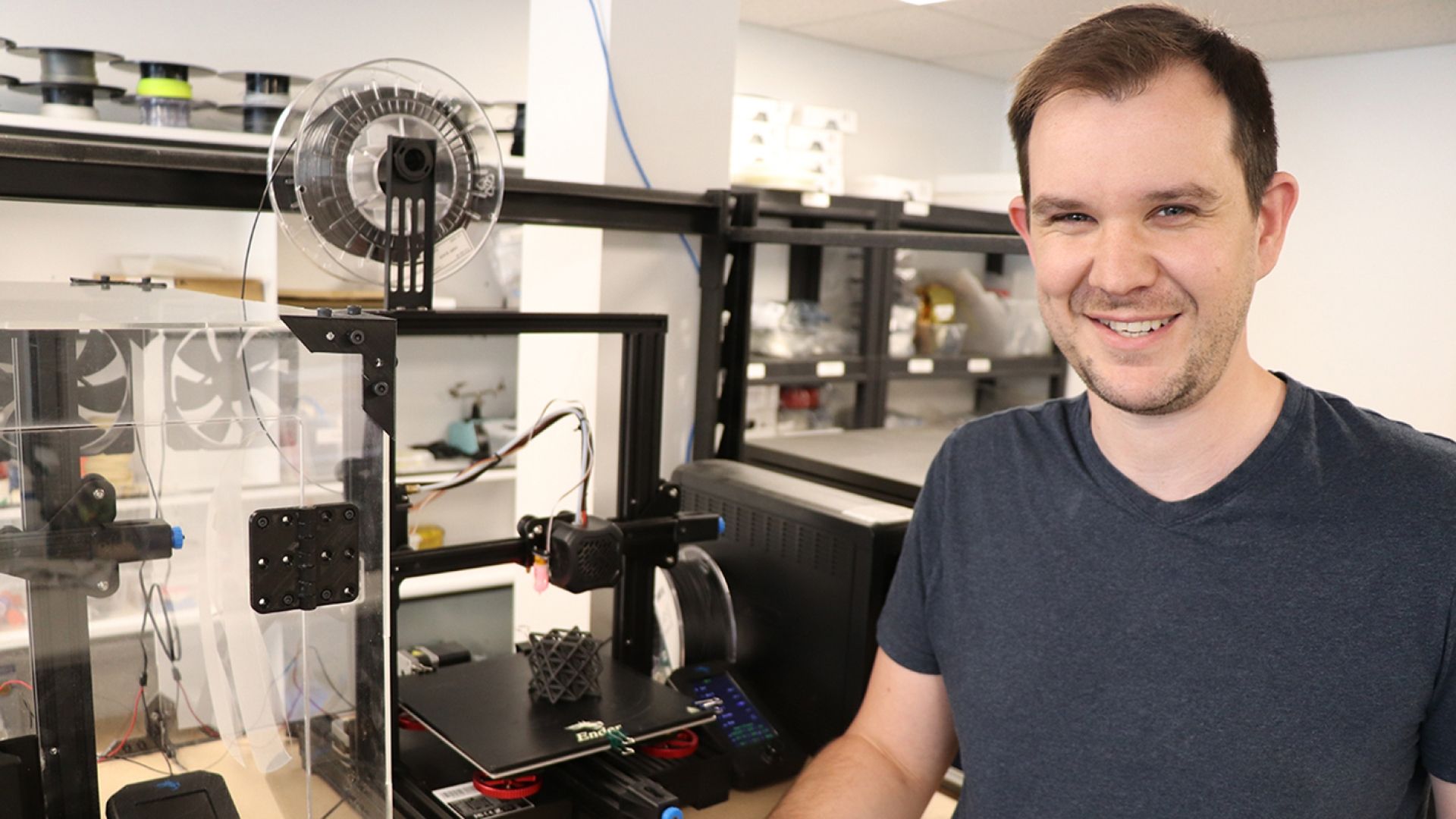
Manufacturing Innovation, Locally
Connect with us for:
- Large-format additive manufacturing (3D printing) with advanced materials, processes and custom extrusion technologies to expand manufacturing capacity and reduce costs.
- Hybrid additive-subtractive manufacturing, integrating 3D printing with precision CNC machining, waterjet cutting and laser engraving to improve efficiency, reduce waste and broaden product capabilities.
- By-product utilization, repurposing materials from mining, forestry and recycled plastics for new applications.
- Rapid prototyping and applied research, delivering quick-turn design, fabrication and reverse-engineering projects.
- Expertise you can trust, powered by researchers and students.
Combining technology with existing or emerging industry is critical to the sustainability of our rural region. Local, rapid manufacturing is a valuable advantage. The incredible Kootenay landscape brings unique challenges—parts and cutting-edge services can be hard to find.
Our rural region is home to a diverse range of industry partners and businesses—from particle accelerators and natural resource companies to outdoor adventure manufacturers.
Our Advanced Manufacturing research team is here to support you in developing new products and reverse engineering critical parts by designing and testing new applications of innovative technologies.
The work is accomplished at the Selkirk Technology Access Centre (STAC), one of 60 NSERC-funded Technology Access Centres (TACs) across Canada, and one of three located in British Columbia.
Over $4 Million in Specialized Equipment
We house over $4 million in specialized equipment and cutting-edge technology, including one of rural Canada’s first 3D metal printers, augmented and virtual reality capacity, high-end 3D scanning technology and industrial-scale waterjet and laser cutters. Our equipment—combined with the technical expertise of our highly skilled and passionate faculty and students—can support you in developing, advancing and commercializing your products and services.
We provide customized advanced technology training, help you secure funding and provide referrals to regional services.
Business clients can connect with expertise through Selkirk-SME Applied Research & Technology Solutions.
Research Spotlight
Developing Engineering-Grade Biodegradable Plastics
Advanced BioCarbon 3D, a Rossland-based company, is en route to producing high quality, engineering grade plastics made from wood by-products. The result will be a truly biodegradable product that could revolutionize and clean up the plastics industry through its diverse applications, while simultaneously providing the forest industry with a market for waste wood.
Researchers at Selkirk Innovates are lending a hand through materials testing and optimization of the company’s manufacturing process.
This project was featured on 3dprintingindustry.com.
3D Terrain Model for Ekati Diamond Mine
The Independent Environmental Monitoring Agency, which oversees the Ekati Diamond Mine in the Northwest Territories, was looking for an effective way to show indigenous and other local communities what the mine site would look like in the future after closure.
The Selkirk Technology Access Centre (STAC) provided an interactive portable map application, showcasing the current and future status of the mine. For consultation purposes, the STAC built a 3D terrain model of the entire site—which is over 40 kilometres wide—and used a data projector to project imagery, like a caribou migration path, onto the model. This made it more interactive helping facilitate discussions with people impacted by the mine.
Custom 3D-Printed Parts for UV Water Treatment System
The Selkirk Technology Access Centre (STAC) worked with 9dot Engineering and Aqua Diversities Waterworks in Nelson, BC, to provide a critical plastic fitting for the UV water treatment system that was damaged due to the heat and UV in the system, and the parts were discontinued.
The small rural village these companies were serving would be looking at a very large unplanned capital expense. STAC came to the rescue and 3D-scanned and reverse-engineered the part and then 3D-printed test pieces to ensure proper fit before it was machined. The prototypes fit but were brittle. One of STAC’s researchers (a millwright machinist) reviewed and further improved the design by using a UV-resistant plastic that was precisely CNC-machined. This part was strong and functional. The client was able to use the files they own to work with another local machine shop for larger orders.

